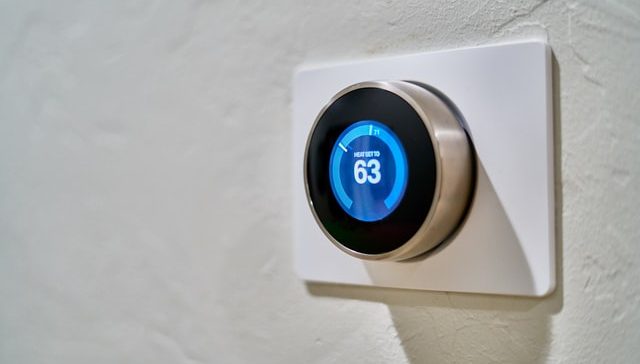PropTech is one of the many buzzwords you have probably heard of when working in real estate. But what exactly does it mean and how can we benefit from it?
The real estate industry is one of the oldest industries in the world, with some companies even existing for nearly 1,500 years. Even though a lot has changed over the last few centuries, the basic concept still is the same. Providing land, space and buildings for people and businesses.
Thanks to many great inventions such as machines, engines and electricity, buildings can be constructed faster and more precise than before. Now, with the internet and big data, the whole real estate industry can benefit from new innovations coming to market every day. Impacting construction, planning, buying, selling, and many other fields. These new technologies can be categorized as PropTech.
What is PropTech?
The word PropTech is a connection of the two words “Property” + “Technology”. It is describing all kinds of technologies that are used within the real estate market. Other words that get used from time to time are “ReTech” for real estate technology and “CRETech” for commercial real estate technology.
PropTech includes everything that is related to digitalisation in real estate. This can be software solutions, sensors, it-infrastructure, marketplaces, tools and other technologies. We will go into more detail in the following chapter of this article.
Some terms that are often related to PropTech are for example “Smart Home”, which is the use of intelligent technologies (sensors, voice control,…) within residential buildings, “Smart Buildings” is similar but includes more technology that is related to commercial buildings. Lastly, “Smart Cities” describe how several buildings and city infrastructure work together and are connected to be more efficient. Some of the top smart cities include Singapore, Dubai and Oslo.

Categories of PropTech
As PropTech is quite a broad keyword and only describes technology within real estate, it is good to classify it in different use-cases. PropTechBiz already compiled a list of categories, that we edited further and divided into broader topics:
Searching, Buying and Selling
Listing and Search
Real estate owners can list their property and make the listing visible for others. Potential buyers can search for buildings, apartments, … and get in contact with the seller.
Marketplace
A marketplace works like a listing and search platform, but with the difference that people can perform the transaction (buying or selling) through it as well.
Broker Free Listing and Search
This is also a listing and search platform but without any broker in-between. This means property owners can get in contact with others directly without a middleman.
Financing and Investing
Investment
These are platforms where people can indirectly invest in real estate, without maintaining the actual building/land. This also includes real estate projects/developments.
Crowd-investing/-funding
The concept is similar to the normal investment platforms, just with the difference that crowdfunding or investing includes a larger number of people participating. This allows the price of each investment to be very low in comparison to traditional investments.
Mortgage Tech
It is all technology related to real estate loans, financing and risk analysis.
Data Management and Analysis
Data, Valuation and Analytics
This includes software and solutions for buyers, sellers, investors and any other stakeholder within real estate to obtain, process and analyse related data. For example, information about the location of a property, economic data and geographic data.
Building Operations
Property/Building Management
These are all solutions that can be used to manage the building itself, such as energy consumption management and also, managing tenant’s requests and transactions.
Marketing and Broker Solutions
Leasing Management
This management solution is aimed at marketing of properties, such as renting only parts of a building, only for a short term or Space as a Service.
Real- and Virtual-Viewing
3D software can be used to visualize apartments and buildings inside and outside. It can also be used for viewings of properties, either in real-time with VR technology or virtually online.
Tech-Enabled Brokerage
This is a technology that can help brokers to find new clients. This includes searching software but also solutions such as virtual viewing (as seen previously).
Agent Matching
This allows buyers or sellers of homes to find the right agent matching their needs. Making it more transparent how the agent can help.
Smart Technology
IoT
Internet of Things or IoT is a term that describes the connection of physical objects with virtual objects. This concept as a whole is not exclusively related to real estate but finds many use cases within the industry.
Smart Buildings
Includes all solutions for buildings that are equipped with smart technologies. They mostly work with sensors that analyse information of the surroundings and adapt devices according to this analysis. For example, smart light turns off when a sensor detects that there is no person in a room anymore.
Smart Cities
Solutions for connected and smart cities. For example, managing energy flow, managing traffic, security and managing the interaction between buildings.

Construction Technology
BIM
Building Information Modelling includes all solutions to visualize and analyse a building’s design and structure.
ConTech
Construction Technology or ConTech is software or hardware that is used to improve the process of constructing buildings by making it faster, cheaper, more accurate or safer.
As you can see, PropTech includes a large variety of solutions for every stakeholder in real estate as well each phase of real estate development. From finding potential land and constructing buildings, to maintaining and selling them.
Popular PropTech Companies
Within the last couple of years, funding for PropTech companies has increased a lot. According to a statistic by GCA, the number of funding rounds is 5 times higher in 2019 than in 2015 with exponential growth.
But why is there such a large interest in PropTech companies and what value do they deliver for customers? In the following paragraphs, we will take a look at some of the most popular PropTech companies worldwide.
By now most people have probably heard of Airbnb, as they operate in many different countries around the world. The platform lets private people rent their homes as a holiday apartment/house for a short term. Airbnb receives a fee from each transaction made with these properties and achieved $4.7 billion in revenue in 2019 with this business model.
The company received $6.4 billion in funding and went public in 2020, where it was valued at $100 billion.
Katerra produces large real estate parts off-site. This means they design and manufacture the product within their company and deliver the final part to the construction site where it will be assembled to create the building.
Katerra has received $1.3 billion in funding.
Opendoor is one of the most innovative online real estate marketplaces. People can list their homes on the site for sale. Opendoor buys the listed property, makes any necessary repairs and then sells it again on the market. This allows people to sell their home as fast as possible. Opendoor creates a profit from fees on the transaction and the higher resell value after repairing the home.
The company has received funding of $1.5 billion and is listed at the NASDAQ since December 2020.
Compass is also an online real estate marketplace, but more focused on real estate agents. The company employs around 17,000 agents that receive a percentage of each sale. By using the internet as their marketing tool, real estate agents can increase their number of sales and thus Compass’s revenue. They also created a mobile app for listing, buying and renting properties.
Compass received approximately $1.6 billion in funding.
All these companies operate within the fields of PropTech. The most successful fields of PropTech are marketplaces, smart building technologies and pre-fabrication.
How can CRE benefit from PropTech?
The commercial real estate market is estimated to be around $14 – $17 trillion. New technologies can have a large positive impact on this by not only increasing property value but also improving important factors such as sustainability and wellbeing of tenants.
The following overview of benefits can also be applied to the residential real estate market, but some solutions might only be useful for commercial buildings such as offices, multi-family housing and retail.
If you want to receive your own custom smart real estate report for your projects, take the assessment on Smart-CRE and we will provide you with a free, comprehensive overview of important technologies.
Reducing Costs and Time
Every phase of real estate development can, with the use of PropTech, potentially reduce some sort of costs and time. This can be in the beginning when acquiring land or buildings. Buyers can use online marketplaces to find the right property and compare it against similar ones. By doing so they can avoid costly mistakes and also safe a lot of time researching.
When planning a new development, architects can use visualization tools such as BIM to create a more precise plan of the building. This helps to avoid any miscommunications or errors in the next phases.
Construction companies can save cost and time by using new technologies and methods of building, such as pre-fabrication or 3D-printing. Drones also play a big role within construction in order to observe the building site and control its quality.
While maintaining properties, tenant management solutions can improve communication between building operators and the people living in them. This also helps to receive payments on time and reduce the time it takes to react to any maintenance problems.
In the last phase, when selling a property, PropTech can help to reduce time as well. By marketing buildings on online marketplaces, buyers will be able to purchase real estate faster than by advertising offline.
Being Ahead of Competition
Sustainability regulations are getting stricter. This means that new developments must be adapted to these rules and old buildings have to be modernized. Some companies might need to adapt to these changes, but if your buildings are always up to date with the newest technology, you will always be ahead of your competition.
Making Buildings More Sustainable
By using energy-efficient heating, smart meters, photovoltaic solar panels or smart shading, energy costs and emissions can be reduced. This will make buildings more sustainable and ready for the future. The initial investment in modern technology will show its effects in the long term and can highly increase a building’s value.

Improving Tenant Comfort and Wellbeing
The comfort and wellbeing of tenants is an important aspect that needs to be taking into consideration when planning real estate. This can be achieved with new technologies such as smart glass to maintain temperature, increase privacy and also block certain radiation. But also, room management and occupancy level systems to increase productivity in offices.
Improving Safety and Security
PropTech solutions can help to increase the safety and security of buildings. Installing smart security systems, cameras and access systems will make it very hard for intruders to enter the building.
Not only the outside should be protected, but also the inside. Safety hazards can arise from events such as gas-, or water leaks or also undetected fires. Intelligent sensors can detect any of these unexpected incidents and report them directly to a central system.
Conclusion
As you can see, PropTech is not only a buzzword. It actually has lots of potential and value for the commercial real estate industry. When thinking about the future of buildings and property, technology will play a major role. This will enable us to achieve a more sustainable, safer and enjoyable experience within CRE that can also increase the return on investment over time.
If you are looking for a free report that provides you with an overview of smart technologies for your CRE project, take a look at our Smart-CRE Report.

